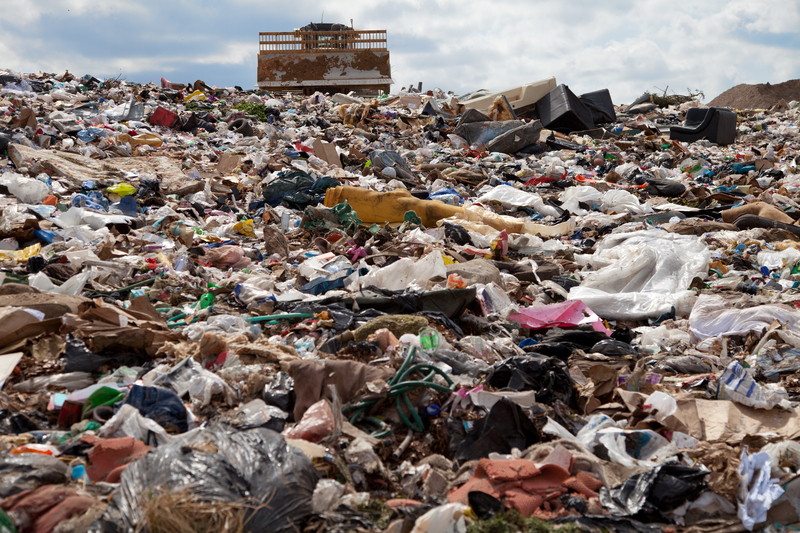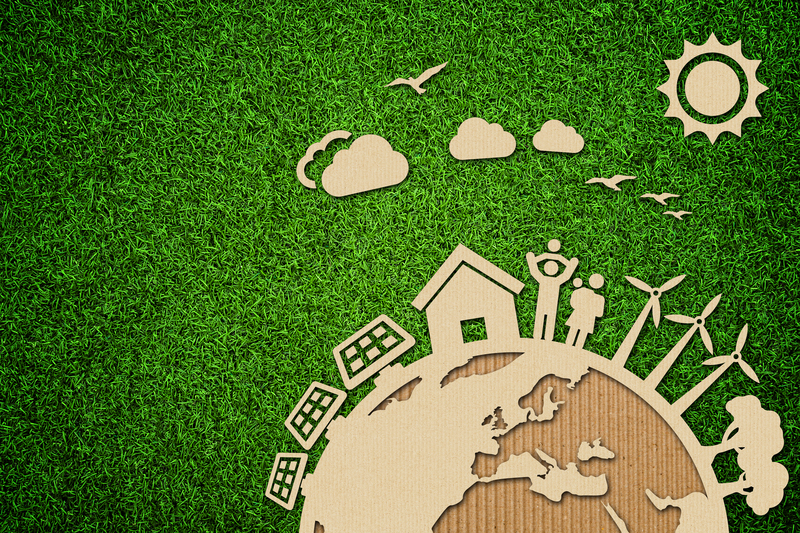Recycling 101: Making It Fun and Educational for Kids
Recycling is one of the most important actions we can take to protect our planet. Teaching kids the value of recycling and how to do it properly is not only good for the environment, but it also helps to build responsibility and awareness that will last a lifetime.
But how do we make recycling engaging, informative, and fun for children? This comprehensive guide, "Recycling 101 for Kids," will share creative activities, tips, and facts to help parents and teachers make recycling enjoyable and educational for young learners.

Why Recycling Matters: Explaining the Basics to Kids
Before diving into activities, it's essential to explain what recycling is and why it matters. Here's how you can break it down:
- The Recycling Process: Recycling is the process of turning old materials--like paper, plastic, glass, and metal--into new products. This saves resources and energy.
- Environmental Impact: When we recycle, we reduce waste in landfills, conserve fresh natural resources, and prevent pollution.
- Our Role: Everyone, including kids, can contribute by sorting waste and making smart choices.
This approach helps children understand the "why" behind recycling, making them more invested in participating.
Fun Recycling Activities for Kids
1. Sorting Games
Make recycling fun with sorting games. Collect clean recyclable materials and set up different bins labeled: Paper, Plastic, Glass, and Metal. Challenge kids to sort items as quickly and accurately as possible. Award small prizes for speed and accuracy to keep them engaged.
2. DIY Recycling Crafts
Turn recycled materials into art! Save items like egg cartons, plastic bottles, and cardboard tubes. Using glue, scissors, and paints, encourage kids to create animals, robots, or jewelry. Not only does this boost creativity, it reinforces the concept of reusing before recycling.
- Make bird feeders from old milk jugs
- Build a cardboard castle
- Create mosaics from bottle caps
3. Recycling Scavenger Hunt
Organize a scavenger hunt. Make a list of recyclable objects common in your home or school. Let children find and place them in the correct bin. This activity builds awareness and helps kids recognize recyclable products. For older children, add a timer and let them compete individually or in teams.
4. Educational Field Trips
Plan visits to local recycling centers or waste management facilities. Many sites offer guided tours that show the recycling process in action. This hands-on experience can inspire kids and help them understand the journey their recyclables take.
5. Interactive Recycling Apps & Games
Take advantage of technology! There are many educational apps and games designed to teach kids about recycling and the environment. These can help reinforce lessons learned at home or in school.
Creative Ways to Teach Recycling at Home and at School
Set Up an At-Home Recycling Station
Create a designated area for recycling in your home. Let kids decorate the bins with colorful labels and pictures to identify what goes where. Making the recycling station kid-friendly turns sorting into a regular part of their routine and responsibilities.
Read Books About Recycling
There is a great selection of children's books focused on recycling for kids, composting, and environmental stewardship. Reading together provides an opportunity to discuss these themes in depth.
Host a "Zero Waste" Challenge
Challenge your family or students to reduce waste as much as possible for a week. Track progress on a chart and celebrate when targets are met! This can spark conversations on how to both reduce and recycle in daily life.
Create a Recycling Reward Chart
Set goals and track kids' progress in recycling with a fun reward system. Offer small incentives for regular participation, creative craft projects, or coming up with new ways to recycle materials at home.
Making Recycling Educational: Key Lessons for Kids
- Conservation: Recycling conserves natural resources like trees, water, and minerals.
- Energy Savings: Creating products from recycled materials often takes less energy than using new raw materials.
- Pollution Prevention: Recycling reduces the need for landfills and incinerators, cutting pollution.
- Responsibility: Teaching recycling encourages responsibility and stewardship in children.
- Real Life Impact: Kid's actions, no matter how small, contribute to a bigger global effort.
Simple Explanations for Complex Ideas
Use visuals and relatable analogies when explaining recycling. For example:
- "Imagine if we never cleaned up after ourselves; soon the house would be too full to walk in! That's what happens when we don't recycle--trash piles up on our planet."
- "Recycling helps us use things again, like turning old crayons into new ones."
Incorporate Recycling Into Science and STEM
Integrate recycling concepts into science projects, math lessons (like tracking recycled materials), or even school art projects. Building models, conducting recycling experiments, and calculating how much waste is diverted can all reinforce learning.
Exploring the Types of Recyclable Materials
Teach children about the different types of recyclable materials and how to sort them:
- Paper & Cardboard: Newspapers, magazines, boxes, and office paper.
- Plastic: Bottles, containers, and some bags--look for recycling codes on packaging.
- Glass: Jars and bottles (usually clear, green, or brown).
- Metals: Aluminum cans, tin cans, foil.
- Special Items: Batteries, electronics, and clothing often have special recycling programs.
Tip: Always, check with your local recycling program to know exactly what can and can't be recycled in your area.
Common Recycling Myths and Misconceptions
Help kids understand the facts by debunking common myths about recycling:
- Myth 1: "Everything with a recycling symbol can go in the bin."
Not all items with the recycling triangle are accepted by local programs. Always check guidelines! - Myth 2: "If you rinse out your recyclables, you waste water."
A quick rinse stops contamination, but you don't need to ensure the item is spotless. - Myth 3: "It doesn't matter if recyclables are mixed together."
Separating materials improves the chances that they'll actually be recycled.
How Parents and Teachers Can Support Kids' Recycling Education
Encourage Curiosity and Questions
Kids learn best when they're encouraged to ask questions. Discuss what happens to recyclables, why certain items aren't accepted, and how their efforts make a difference. Use open-ended questions to promote critical thinking.
Lead by Example
Children are more likely to embrace recycling if they see adults consistently sorting and reducing waste. Make recycling visible in your daily routine--whether it's washing containers before recycling or bringing reusable shopping bags.
Integrate Recycling into Everyday Life
- Use reusable lunch containers instead of disposable ones.
- Create a compost bin for food scraps.
- Shop for products made from recycled materials.
- Share stories about how recycling helps communities and wildlife.
Engaging Recycling Facts for Kids
- Did you know? Recycling one aluminum can saves enough energy to power a TV for three hours!
- Every ton of recycled paper saves 17 trees and thousands of gallons of water.
- More than 60% of the trash thrown away could be recycled.
- Plastic bottles can be made into clothing, like jackets and T-shirts.
- Glass can be recycled endlessly without losing quality or purity.

Recycling 101 for Kids - A Summary
Making recycling fun and educational for kids isn't just about sorting bottles and cans--it's about building lifelong habits and a sense of environmental responsibility. By incorporating creative recycling activities, games, crafts, and real-world lessons into their daily lives, children will learn how their actions can have a positive impact on the planet.
Remember: Recycling education for kids works best when it's hands-on, engaging, and part of regular routines. Whether at home, in the classroom, or out in the community, every small effort counts!
Additional Resources on Recycling for Kids
- National Geographic Kids: Recycling
- EPA: Recycle Basics
- USDA: Education Resources
- Recycle Everywhere: Kids Zone
Empower your kids to become recycling champions--start your family's recycling journey today!